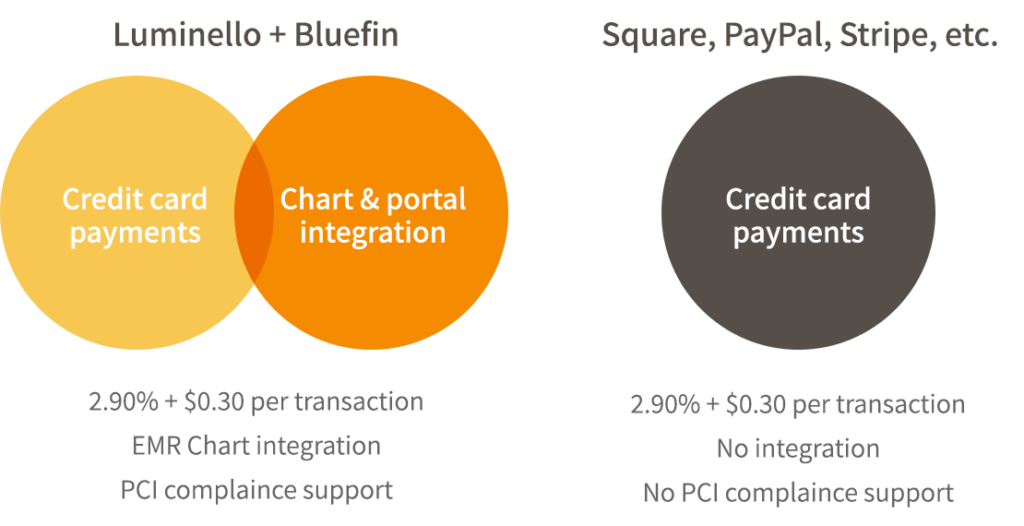Hello and welcome to the first installment in our private practice miniseries, on the mechanics of getting started in your very own psychiatry or therapy private practice. Throughout this series we’re going to give you bite-size nuggets of wisdom and present for you the essentials you’ll need to think about so you can actually get going.
This is video 1 of 6 in our series Starting a Psychiatry or Therapy Private Practice:
- Episode 1: The Mechanics of Getting Started
- Episode 2: Income in Private Practice
- Episode 3: Marketing your Private Practice
- Episode 4: Start-up Decisions You Must Make
- Episode 5: Technology in Private Practice
- Episode 6: The Highly Efficient Private Practice
Disclosures
My name is Ken Braslow, and I’m a board-certified psychiatrist. I trained at UCSF, run my own private practice in San Francisco, and founded Luminello, the electronic medical record for psychiatrists and therapists. There are no other disclosures.
Goals
The goals of today’s presentation are to think through the potential pros and cons of various decision points in starting up your practice, and then come up with an action plan for you to embark upon.
Overview
We’re going to cover how to actually choose a physical office space, how to figure out what technological space your practice should be working in, and how to surround yourself with a professional community that supports your growth and development
Physical Space
Luminello EMR
Try our free plan for as long as you’d like.
Learn more
Okay, let’s start off talking about picking your office location, because before you have a practice, you have to have an office. And the way that many patients think, it’s something like – you could be Freud, but if it takes me 1/2 hour to get to your office, I might not choose you. Ideally your patient population can reach you within 15 minutes.
Now let’s think about the number of office locations you should have – one is obviously simpler for you. But, a second location in another city or different part of town opens up another population, which may mean you fill up your practice faster.
Should you sublet your office space from a colleague? This is a great for starting out, as your freedom isn’t limited, and your upfront costs are minimized. But you may have to put up with floral chairs and older carpet. Many cities have active Craigslist listings for therapist sublets, but you could also check listserves.
Some other considerations in choosing an office space include level of outside noise and soundproofing, windows and lighting, accessibility, and safety (for e.g. does the building have a doorman).
Also, is the office isolated or in a suite with shared waiting area and potential to share costs for wifi, watercooler, magazines, etc. Are there opportunities to work near colleagues with whom you can cross-refer, tap for clinical questions, etc.
Technological Space
Moving on to your technological space…what EMR/project management system are you going to choose? The best way to decide is to demo out all the various systems available on the market. And of course get colleague recommendations.
What phone number are you going to give out? Are you going to use your cell phone, get a dedicated land-line in your office, or use a VOIP service? Are you going to get a fax machine tied to your number, or use a virtual service?
You’ll also need to think about what service are you going to use for video, if you’re going to offer that? Ideally it should be very easy for your patients figure out, so you don’t give up session time trying to talk them through it.
And finally, for any system that may contain protected health info – your EMR, voicemails, or faxes, or video, make sure the vendor is willing to sign a HIPAA agreement in writing.
Supporting Community
Okay, now let’s move on to discussing who you should consider having on your team as you go through the starting up process:
First, a lawyer – if you want to incorporate, or have questions about licensure, it’s good to just get the right answers to start with instead of googling it. You could go cheap now, but might end up paying exponentially more later.
Next, an accountant – even if you want to do your own taxes, I’d recommend at least a one-time meeting with an accountant to learn their take on the tax benefits/consequences of various business structures you might be considering, like an s-corp vs a solo proprietorship vs a c-corporation.
Payroll – If you choose to incorporate and/or you hire any employees, you’ll need a payroll service so you don’t waste hours on paperwork minitua.
Financial books – At end of year, you need to file taxes. Where will you get the numbers from? From the summary of your accounting books. So you’ll need to think about who will administer those books? You (in a software like QB) or a bookkeeper? Even if you’d like to do it yourself, setting up at least a one-time meeting with a bookkeeper so they can show you the ropes is a huge time savings down the road.
Your own administrative assistant – On day one, I don’t recommend it, as it could be expensive, you’ll have to spend time interviewing, and then eventually on training, and you’ll want to know what your own policies and ways of doing business are first. But depending on how fast you grow, an admin assistant can make you more money, not less, because they free up your time for clinical care.
Insurance – Where will you buy your practice’s various insurance policies from, like malpractice coverage, or slip and fall? Often the national or regional medical or mental health societies offer plans; but even if you don’t buy from them, chatting with them on the phone about the pros/cons of their plans is valuable
Professional Community
And finally, let’s discuss how you build a professional community into your structure.
First, in your office location, there may be other mental health or medical professionals. Get to know them – referring to a colleague down the hall has its advantages.
Listserves – Yes, they’re still around, and they are a great place to introduce yourself and let others know you have availability. Down the road, they are a good place to ask and/or answer clinical questions, and in the process you get to know who’s who in the local community.
Next, do you want to be on a faculty? Looks good on business card/your website. You’ll need to think about how much time will it entail.
And finally, peer consultation groups are great for continued learning, and feeling connected instead of isolated.
Conclusion
So, that wraps up our presentation — we’ve discussed thinking through your physical office space, technological space, business community, and professional community, The next step is for you to investigate and, if you can, test out your assumptions.
And, browse more helpful content in our Private Practice Hub resource center for lots of other free, useful tips. Thanks for tuning in and wishing you the best in building and growing your practice.


